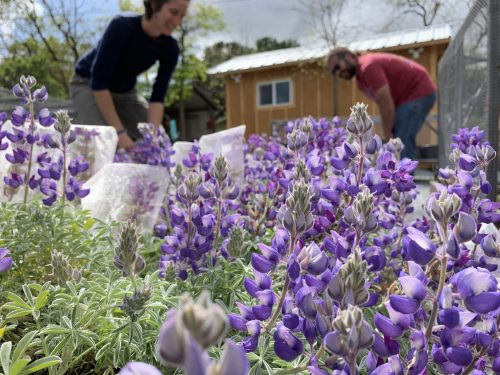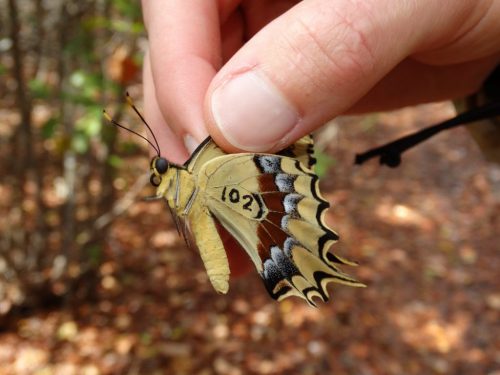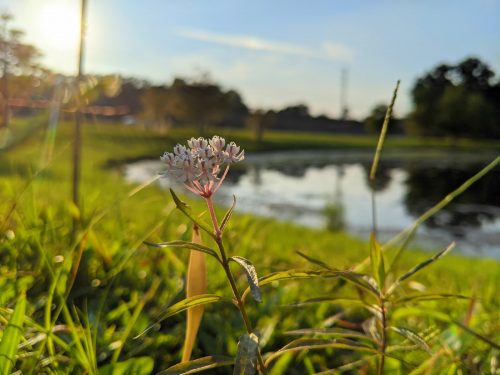Butterflies are among the most charismatic and well-known insects in the world. They are important indicators of environmental health and model organisms for studying the impacts of climate change and habitat loss, degradation and fragmentation.
UF is developing tailored conservation strategies to help reverse the decline and aid the recovery of more than 42 at-risk butterfly species in Florida and California. These efforts include habitat and species restoration, scientific research, and public education.
News & Highlights

Recovery of the Mission Blue Butterfly
The Mission Blue Butterfly (Icaricia icarioides missionensis) is a federally endangered butterfly that exists in coastal grassland habitat in California. Remaining populations of Mission blue butterfly are found in only a few locations around the San Francisco Bay area. Creekside Science, in partnership with the Daniels lab at the Florida museum, has successfully launched…

Recovering the Schaus’ Swallowtail
The critically endangered Schaus’ Swallowtail (Heraclides aristodemus ponceanus) is a large, iconic butterfly found only in South Florida. Historically, the butterfly inhabited dense upland forests called tropical hardwood hammocks from the greater Miami area south through the Florida Keys. Habitat loss and fragmentation over the past century have led to…

Roadways for monarchs
The Monarch (Danaus plexippus) is one of the most beloved animals in North America. Beyond being a common garden visitor, it is well known for making an amazing annual migration. During spring and summer, monarchs breed throughout the U.S. and southern Canada. In the fall, adults of the eastern population migrate to…
- NPR News: Cracking a cold one open for the butterflies
- Associated Press News: Researchers help rare butterfly take flight in the Florida Keys
Miami Blue Butterflies
How Can I Help?
The Florida Museum’s McGuire Center for Lepidoptera and Biodiversity serves both research and public education functions. The McGuire Center houses one of the world’s largest and fastest growing Lepidoptera collections, representing most of the world’s 20,000 butterfly species and many of the estimated 245,000 moth species.
Support butterfly conservation Visit the Center’s WebsiteContact
Marie Emmerson
Senior Director of Advancement
Florida Museum of Natural History
McGuire Center for Lepidoptera and Biodiversity
emmerson@ufl.edu
352-273-2087 office
352-256-9614 cell